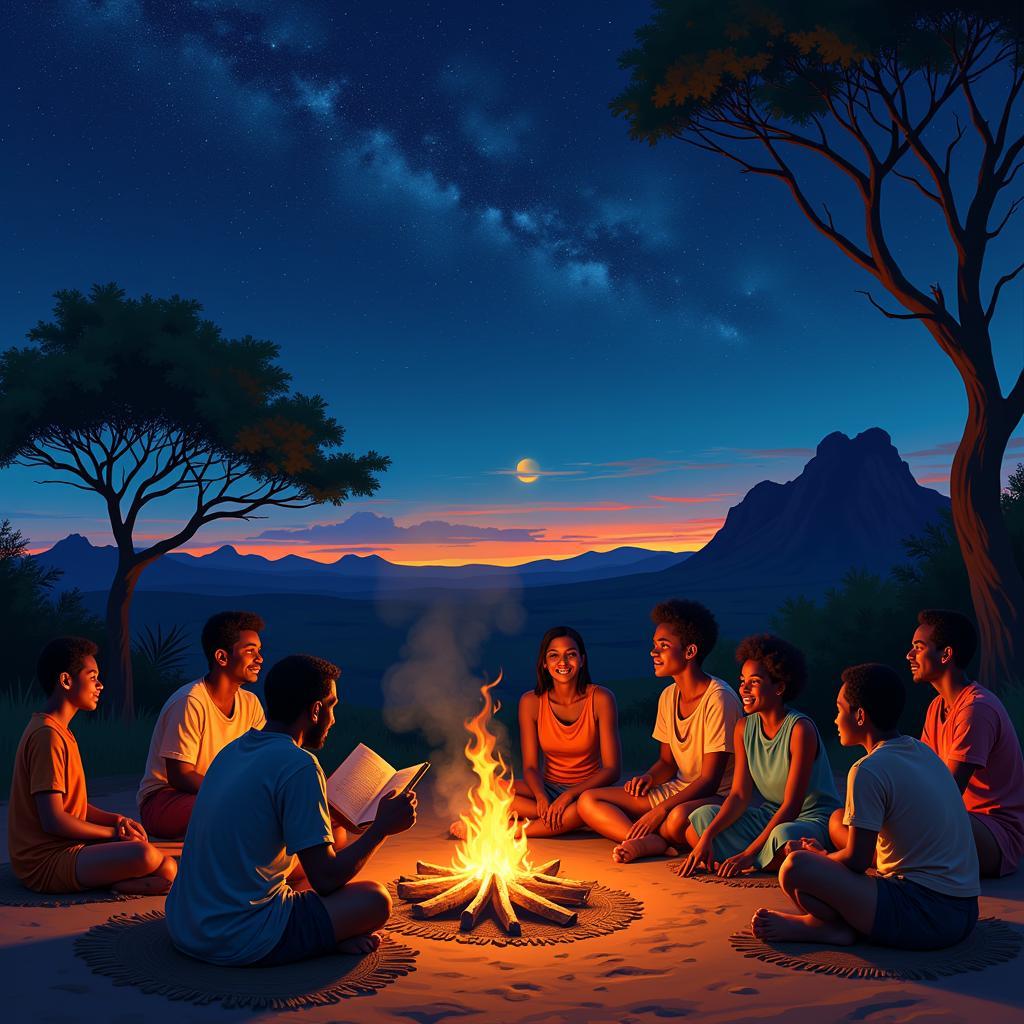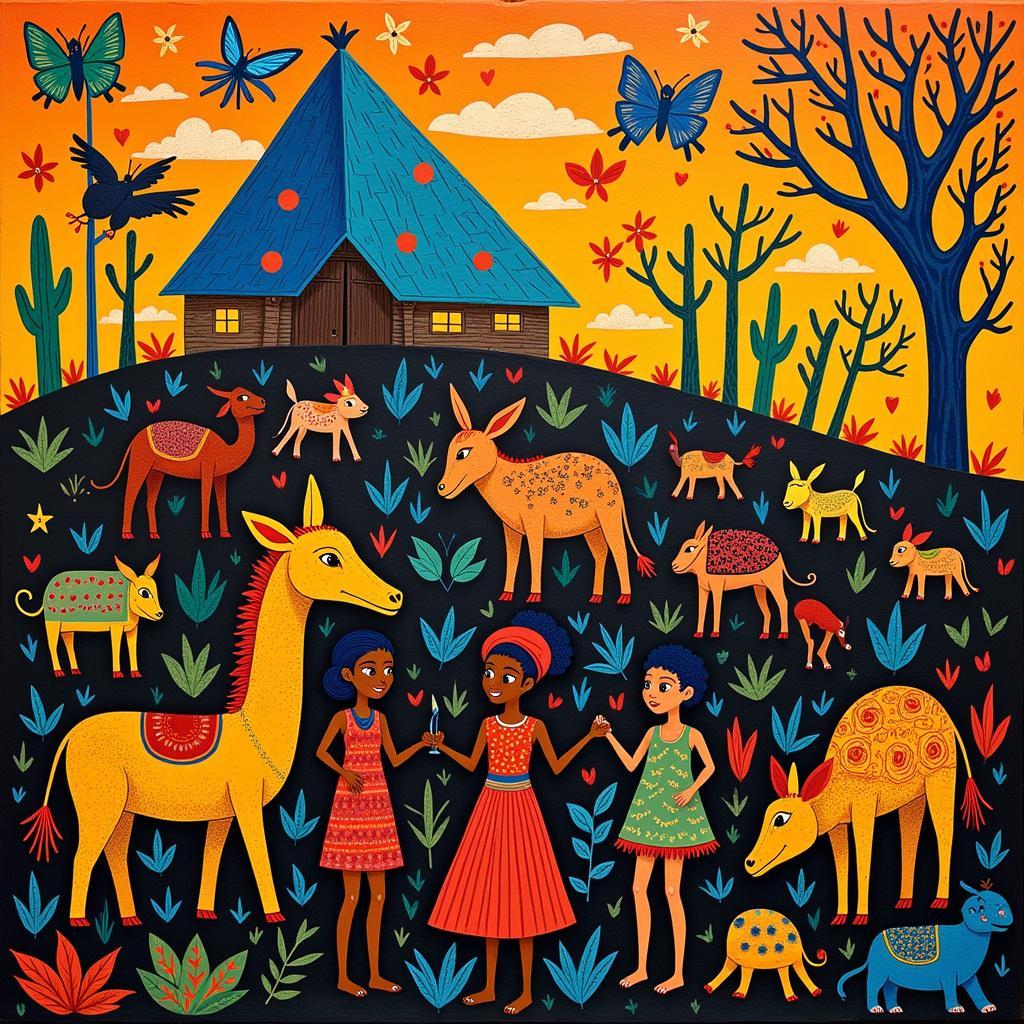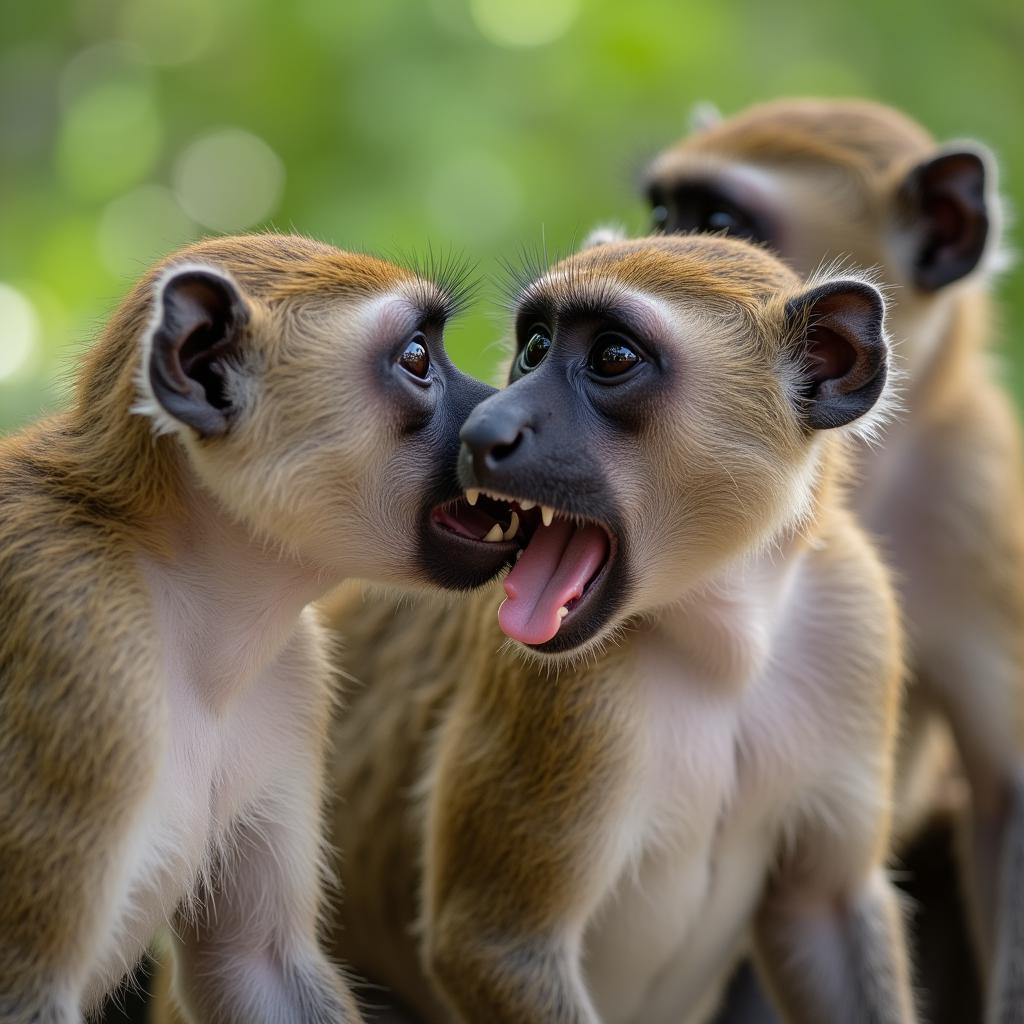Exploring Africa Through African Folklore Books
African Folklore Books offer a captivating window into the soul of a diverse continent. They are more than just stories; they’re vessels of ancient wisdom, historical reflections, and cultural treasures passed down through generations. These narratives, rich in symbolism and allegory, unveil the values, beliefs, and societal structures that have shaped Africa for centuries.
Why Dive into African Folklore Books?
Reading African folklore offers a multitude of benefits:
- Understanding Culture: Folklore provides invaluable insights into the customs, traditions, and social norms of various African communities.
- Appreciating History: These stories often weave in historical events and figures, providing alternative perspectives on Africa’s past.
- Exploring Morality: Folklore often revolves around moral dilemmas, teaching valuable life lessons about honesty, courage, and respect.
- Connecting with Nature: Many stories highlight the interconnectedness between humans and the natural world, reflecting a deep reverence for nature.
- Language Learning: Immersing yourself in traditional tales can introduce you to the beauty and nuances of different African languages.
 African Storytelling Session
African Storytelling Session
Types of African Folklore
The world of African folklore is as diverse as the continent itself. Here are some common types:
- Animal Tales: These stories feature animals acting as humans, often with moral lessons embedded within. Think of Anansi the Spider, a popular trickster character in West African folklore.
- Trickster Tales: These narratives revolve around cunning characters who use wit and deception to overcome challenges. They offer commentary on social dynamics and human nature.
- Creation Myths: These stories explain the origins of the world, humans, and natural phenomena. They often reflect the spiritual beliefs of different African cultures.
- Heroic Epics: These tales celebrate legendary heroes and their courageous feats. African fiction often draws inspiration from these epic narratives.
- Fables: Similar to animal tales, fables offer concise moral lessons through simple stories, often featuring both human and animal characters.
Choosing the Right African Folklore Books
With such a vast selection, where do you begin?
- Consider Your Interests: Are you fascinated by mythology, history, or animal stories? Perhaps you’re drawn to a specific region like West Africa, known for its rich oral traditions, or interested in African baobab tree legends?
- Explore Different Authors: Seek out authors from various African countries to experience a range of perspectives and storytelling styles.
- Look for Anthologies: Anthologies offer a curated collection of stories from different cultures and time periods, providing a broader overview.
- Read Reviews: Online reviews can provide valuable insights into writing style, themes, and overall impact.
The Enduring Power of African Folklore
African folklore books provide a captivating journey into a world of vibrant cultures, ancient wisdom, and timeless stories. They offer a unique lens through which to view the world, challenging our perspectives and enriching our understanding of humanity. As you delve into the pages of these books, be prepared to be transported to a world of wonder, imagination, and profound insight.
FAQs About African Folklore Books
1. What are some popular African folklore creatures?
African folklore is teeming with fascinating creatures, from Anansi the Spider to the mischievous Yumboes. Other notable figures include the cunning hare, the wise tortoise, and the powerful leopard, often embodying different virtues or vices.
2. Are African folklore books suitable for children?
Absolutely! Many African folktales are inherently engaging for young readers, featuring talking animals, magical adventures, and valuable life lessons. Look for age-appropriate adaptations.
3. Where can I find authentic African folklore books?
Independent bookstores specializing in international literature are a great starting point. Online retailers and libraries also offer extensive collections.
4. What is the significance of music in African storytelling?
Music and storytelling are deeply intertwined in many African cultures. Rhythms, songs, and instruments enhance the narrative, evoke emotions, and actively engage the audience.
5. How has African folklore influenced contemporary art forms?
African folklore continues to inspire artists across various mediums. From literature and film to music and visual arts, these traditional tales provide a rich source of inspiration for contemporary creations. You can find examples of this influence in African goat images and African folktales with animals.
 African Folklore Inspired Art
African Folklore Inspired Art
Need more insights? Explore our website for captivating articles on African American literature short stories.
Let us know if you have any questions or need further assistance. Contact us at:
Phone Number: +255768904061
Email: kaka.mag@gmail.com
Address: Mbarali DC Mawindi, Kangaga, Tanzania
Our dedicated customer support team is available 24/7 to assist you.




